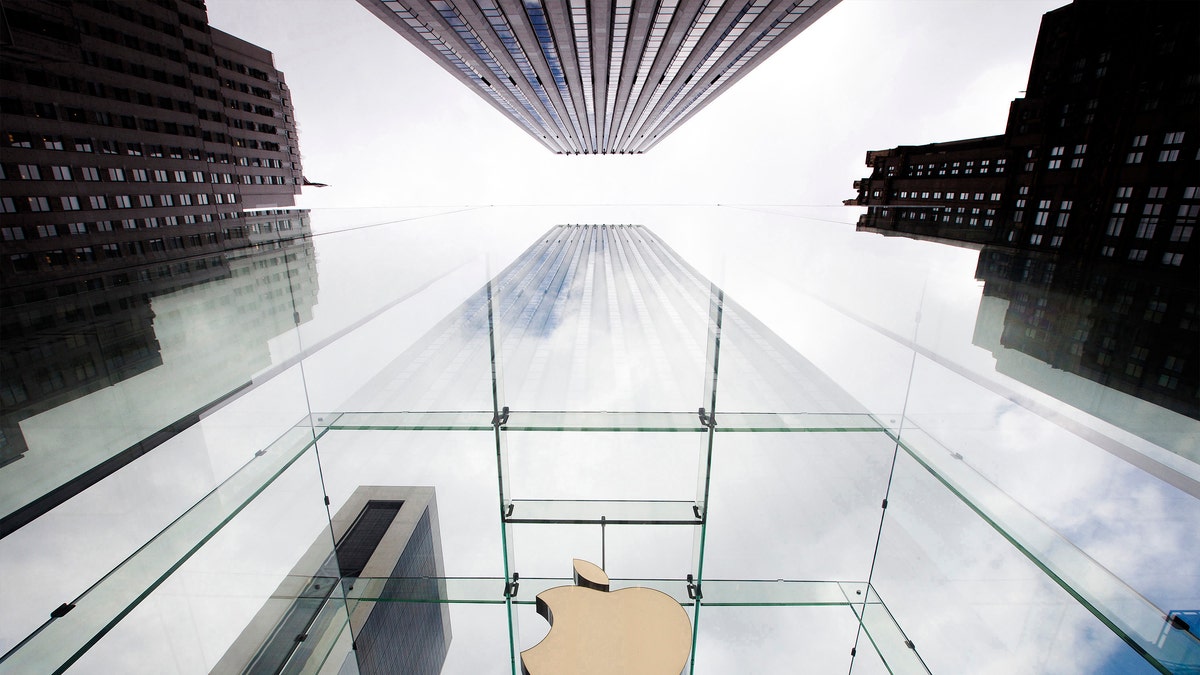
File photo. (REUTERS/Lucas Jackson)
The best excuse for failing to comply with federal regulations? Simply shrugging and saying "no can do." Literally. At least, that's the strategy being taken by Apple and a number of other tech companies who aren't so much refusing to hand over data as they are saying that it's literally impossible to do so. Thanks to increasingly complex encryption systems, companies like Apple are claiming that their hands are tied when it comes to releasing data to federal officials, and the stand-off is only leading to heightened tensions between the technology industry and the American government.
In the post-Snowden era, in which concerns about spying and surveillance from the National Security Agency are at an all-time high, companies are more eager than ever to show that they're on the consumer's side, even if it means going directly against the government. And as more and more of our lives become inextricably linked to the Web, many individuals are increasingly concerned about the levels of privacy they're afforded by tech companies and service providers. Hearing these concerns, Apple released iOS8 for the iPhone almost exactly a year ago in September of 2014, which offered end-to-end encryption for both its iMessage and FaceTime systems.
Related: What to expect from Apple’s Sept. 9 event: iPhone 6S, iPad Pro, Apple TV, and more
This decision, while welcomed by users, was sharply criticized by some federal officials who anticipated the standoff such encryption practices might (and now have) catalyze(d). Last year, FBI Director James Comey expressed his dissatisfaction, saying, "I like and believe very much that we should have to obtain a warrant from an independent judge to be able to take the content of anyone's closet or their smart phone. The notion that someone would market a closet that could never be opened -- even if it involves a case involving a child kidnapper and a court order -- to me does not make any sense."
And more recently this summer, Sally Q. Yates, the deputy attorney general, told Congress, "It's important that we do not let these technological innovations undermine our ability to protect the community from significant national security and public safety challenges." After all, Apple's refusal or supposed inability to comply with these orders does seem to privilege the privacy rights of a few individuals over the safety and well-being of a much greater populace, the legitimacy of which delves into far deeper questions of the nature of our democracy as a whole.
For Apple, the key issue at stake is keeping everyone's information as safe as possible from hackers -- even if that includes a few criminals. "If you put a key under the mat for the cops, a burglar can find it, too," Apple CEO Tim Cook noted. And if miscreants "know there's a key hidden somewhere, they won't stop until they find it." That being said, a recent Wired report casts doubt as to just how encrypted Apple's iMessages are, pointing out a key flaw in their "sorry, we can't see anything either" defense.
"… The thing is," Joseph Cox writes, "There is actually a very high likelihood that, technologically, iMessage could be wiretapped, because it does not allow users to verify encryption keys when writing or receiving messages."
Regardless of this technicality, Apple certainly isn't budging anytime soon, and it doesn't look as though the FBI is interested in going down without a fight either. So gird your loins everyone -- the next great battle is upon us, and this time, it's all about encryption.
